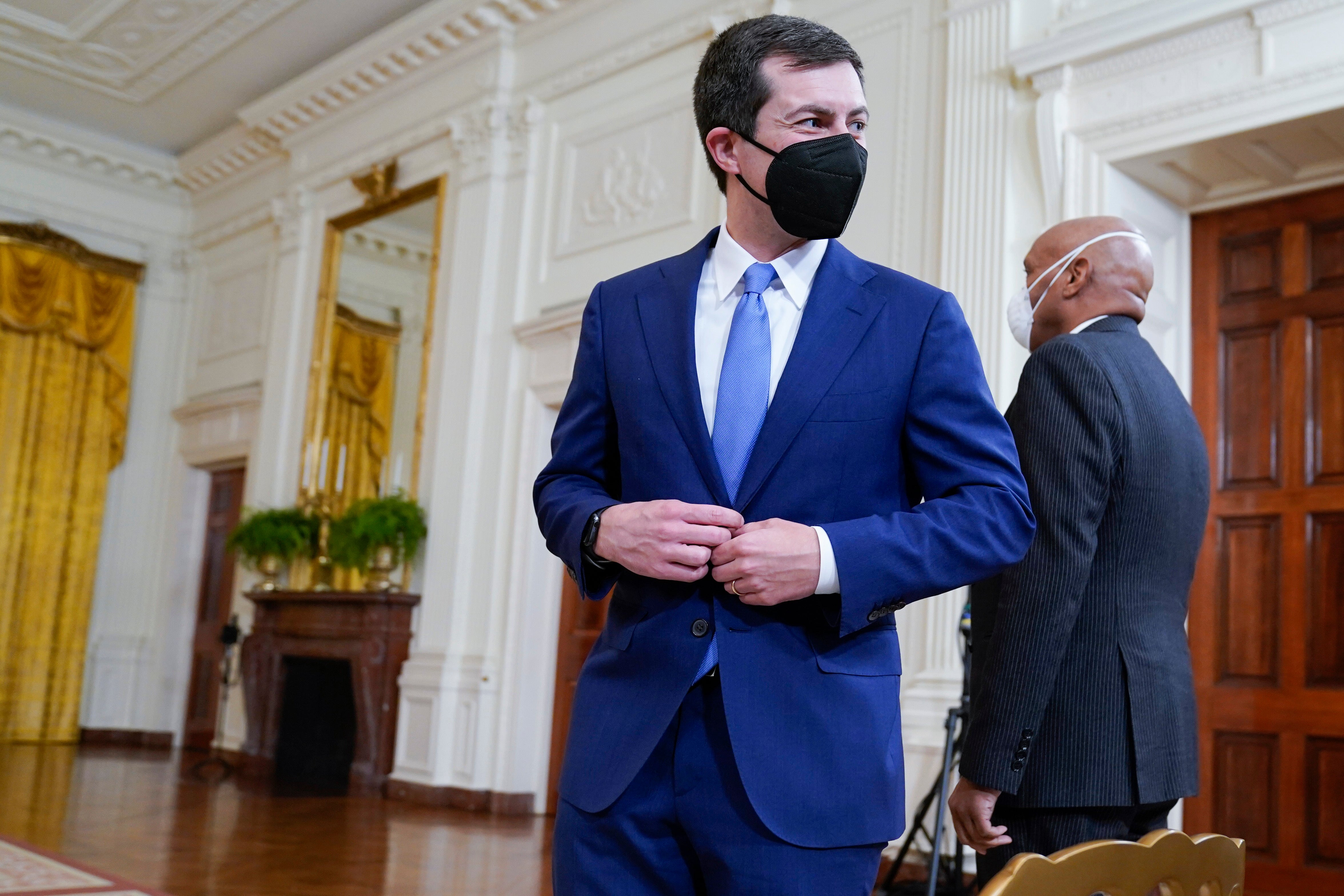Buttigieg is right — America’s roads are racist. Ted Cruz and Tucker Carlson are pretending to misunderstand
The right has lost its collective mind about Buttigieg’s logical and historically accurate point


Your support helps us to tell the story
From reproductive rights to climate change to Big Tech, The Independent is on the ground when the story is developing. Whether it's investigating the financials of Elon Musk's pro-Trump PAC or producing our latest documentary, 'The A Word', which shines a light on the American women fighting for reproductive rights, we know how important it is to parse out the facts from the messaging.
At such a critical moment in US history, we need reporters on the ground. Your donation allows us to keep sending journalists to speak to both sides of the story.
The Independent is trusted by Americans across the entire political spectrum. And unlike many other quality news outlets, we choose not to lock Americans out of our reporting and analysis with paywalls. We believe quality journalism should be available to everyone, paid for by those who can afford it.
Your support makes all the difference.Another day, another manufactured right-wing outrage about America’s history of systemic racism. On Monday, White House correspondent for The Grio April Ryan asked Transportation Secretary Pete Buttigieg how the infrastructure bill will “deconstruct the racism that was built into the roadways.” Secretary Buttigieg, who has talked about this issue before, delivered a response that would set right-wing Twitter on fire with white-hot rage.
Senator Ted Cruz (R-TX) sarcastically tweeted, “The roads are racist. We must get rid of roads.” Fox News anchor Tucker Carlson, who has himself sparked backlash over the past year for echoing the white supremacist Great Replacement theory, tweeted a video segment mocking Secretary Buttigieg’s remarks, adding: “Inanimate objects, like roads, can’t be racist. That seems obvious, though apparently Pete Buttigieg doesn’t know this.”
Actually, Buttigieg does know this, and so does everyone else who has rightfully pointed out the history of systemic racism in America’s infrastructure. It’s a typical strategy of right-wing figures to drastically underestimate the intelligence of their base and push the most simple-minded explanation of a given topic. Obviously, inanimate objects like roads can’t be racist, but the intent and strategy that goes into how some roads are constructed can be, and were, absolutely racist.
The example that Secretary Buttigieg cited about the low overpass came straight from “The Power Broker,” Robert Caro’s famous 1974 biography on New York City official Robert Moses. This specific claim has drawn scrutiny for decades and was confirmed to be true by Bloomberg’s Thomas J. Campanella in 2017, as The Washington Post’s Philip Bump pointed out in his piece on Secretary Buttigieg’s comments.
Not only was Buttigieg’s anecdote backed by evidence, but the extent of this problem also goes far beyond Robert Moses. The issue of systemic racism in America’s highways is well-known. Deborah N. Archer, a professor at the NYU School of Law, has written extensively about this issue. In a lengthy paper outlining how racial equity can be advanced through highway reconstruction, Professor Archer delivered an in-depth look at how many highways across the country were built with racist intent, writing: “In states around the country, highway construction displaced Black households and cut the heart and soul out of thriving Black communities as homes, churches, schools, and businesses were destroyed. In other communities, the highway system was a tool of a segregationist agenda, erecting a wall that separated white and Black communities and protected white people from Black migration.”
Highways are just the tip of this systemically racist iceberg. There’s also redlining, which is the decades-long racist practice where banks denied Black families loans to purchase or renovate homes based on their race or where they lived. It was once government-backed. This heightened the segregation of American neighborhoods, ramifications we’re still grappling with today.
Redlining also impacted which neighborhoods received funding for local projects because it made it simple for government officials to determine who lived where. As we can see with our own eyes walking through neighborhoods of different wealth and racial demographics, it’s clear the wealthier, whiter areas have cleaner streets and more well-kept infrastructure.
There is also the issue of sundown towns. The Associated Press described it succinctly in their deep dive into the modern impacts of this racist practice: “The rules of a sundown town were simple: Black people were allowed to pass through during the day or go in to shop or work, but they had to be gone by nightfall. Anyone breaking the rules could risk arrest, a beating or worse.”
How is all that relevant, and how can infrastructure have racist impacts? These racist practices impacted where Black people lived, where they were able to work, the way they commuted to work, the accessibility of services, where they were able to shop, how they could travel, and the overall quality of their lives. “I’m still surprised that some people were surprised when I pointed to the fact that if a highway was built for the purpose of dividing a white and a Black neighborhood, or if an underpass was constructed such that a bus carrying mostly Black and Puerto Rican kids to a beach — or that would have been — in New York was designed too low for it to pass by, that obviously reflects racism that went into those design choices,” Secretary Buttigieg said.
Once again, we’ve all been gifted with a great opportunity to elevate objective reality in the face of disinformation and historical denialism. Republicans are currently advocating for the banning of certain teachings of systemic racism in schools. Their ignorant response to Secretary Buttigieg’s accurate statements about racism in America’s infrastructure just proved why it’s so important to teach this.
Those who acknowledge America’s history of systemic racism don’t hate America. On the contrary, we love it enough to point out these uncomfortable truths so we can pursue that seemingly elusive, more perfect union. How can we make improvements if so many Americans deny the existence of these flaws? It’s time for us to get on the same page.
Join our commenting forum
Join thought-provoking conversations, follow other Independent readers and see their replies
Comments